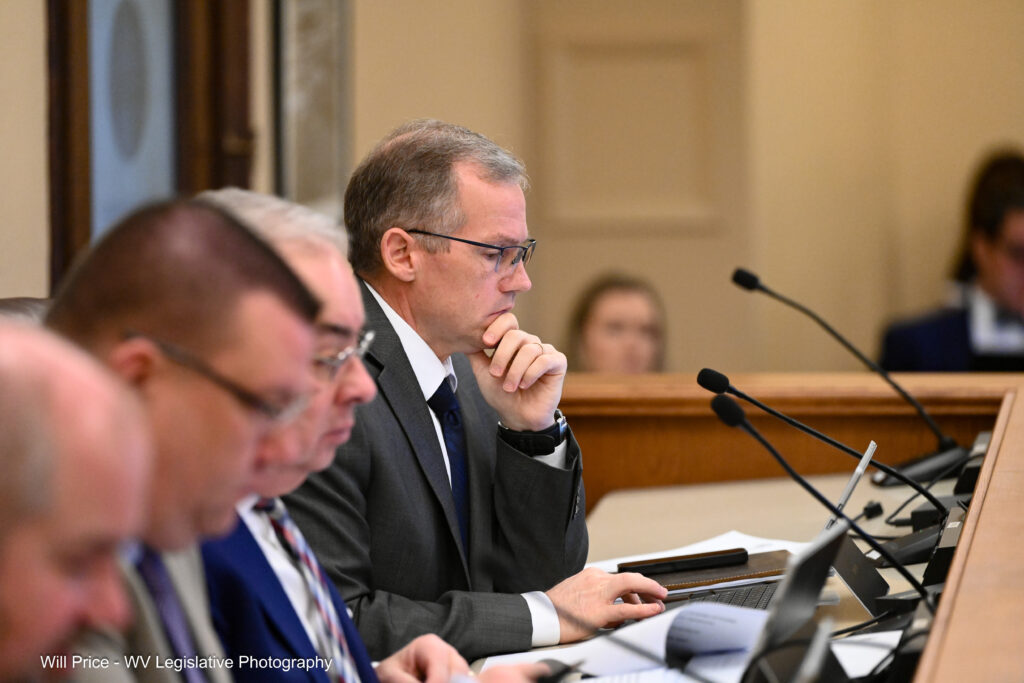From the Eastern Panhandle to the southern mountain counties, West Virginia contains great variety. To start the week, both education committees debated bills to address unique regional issues.
House Bill 2939, the Remote Schools Support Act, would provide additional financial support to ‘extremely remote schools’ and address unique challenges relating to operational costs and training tailored to rural schools.
Extremely remote schools are defined in the bill as serving at least 20 students and being located 20 traveling miles or more from another school.
Del. Jonathan Kyle, R-Randolph, is the bill’s lead sponsor. Under his bill, schools that meet the “extremely remote” criteria would be exempt from closure or consolidation. Kyle told the House Education Committee Monday afternoon that consolidation is just not feasible for some schools in West Virginia due to mountainous terrain that’s difficult to traverse.
“It’s just not reasonable for those students to have to travel an hour or more on a good day, in the morning, an hour or more in the evening, to travel, and then if something happens during that hour, let’s say there’s bad weather, there’s a car crash, there is no opportunity for emergency services,” he said. “Frankly, there’s no place for the bus to even turn around.”
Kyle identified six schools across the state that would qualify under his bill’s criteria. He was asked about the financial need extremely rural schools face, and said some schools are running as much as $1 million over budget despite slashing staff to the absolute minimum.
“For 100 kids, they have 19 positions. They can’t cut it anymore,” Kyle said. “They have some special needs kids and some things. They have cut their budget as tight as they possibly can. And these schools still run in the red.”
A committee substitute of House Bill 2939 was advanced by the committee Tuesday afternoon, with a reference to the House Finance Committee.
House Education also advanced House Bill 2003, a statewide ban of cell phones in schools, as well as House Bill 2394. Titled “Alyssa’s Law,” the bill would require teachers to wear a “mobile alert button” for emergency situations.
Locality Pay, Referee Safety
In the Senate Education Committee Tuesday morning, lawmakers turned their attention to border counties and the issue of locality pay. Many of West Virginia’s school districts have to compete for staff with better-paying districts in neighboring Virginia, Pennsylvania and Ohio.
Senate Bill 506 aims to retain and attract certified teachers by creating an enhancement to teacher salary based on the home prices in a county.
Sen. Eric Tarr, R-Putnam, is the bill’s lead sponsor and the former chair of the Senate Finance committee. He said the bill makes compensation more consistent with market forces rather than arbitrary raises across the board.
“That’s the intent, whether or not the legislature adopts it, I think that the concept is something that bears discussion,” Tarr said. “Should we be looking at market pay in order to attract professionals into West Virginia, into state government positions that our citizens depend on?”
The bill does carry a fiscal note of close to $200 million.
Sen. Craig Hart, R-Mingo, was of two minds over the bill. He said as a teacher he was excited at the prospect that such a bill could help raise pay across the state, but also recognized 30 counties would not qualify for the bill’s pay enhancements.
“I feel like the richer counties have, or should have, properly budgeted the money to offset the pay for their teachers, whereas the poor are not helped out with this and the poor just get poorer,” he said. “I have really mixed feelings. I want to see teachers paid more, I’m not sure of having the state pay them more.”
The bill was advanced with a reference to the Senate Finance committee.
The committee also considered Senate Bill 531, which would increase penalties for offenses of assault and battery on athletic officials.
Sen. Mike Woelfel, D-Cabell, and the bill’s sponsor, told the committee Tuesday morning referees are getting harder and harder to find because of the increasing regularity of verbal and even physical abuse.
He said penalties need to be enhanced, but admitted he may have gone too far in making simple assault a felony in the bill.
“I just felt like if I made it outrageous, to be honest with you, like felonies for assault, I might get on an agenda,I might get somebody to listen” Woelfel said. “Sometimes you’ve got to be a little bit outrageous to get things moving. So I’m very comfortable, I’m not married to any of the language, no pride in authorship. Whatever this committee thinks, I’m very comfortable with.”
Sen. Vince Deeds, R-Greenbrier, amended the bill to step both battery and assault back down to misdemeanors, but now with the possibility of up to a year in jail. The amendment also expanded the enhanced penalties to other athletic staff like coaches and coordinators.
The amended bill was advanced with a reference to the Senate Judiciary Committee.

























